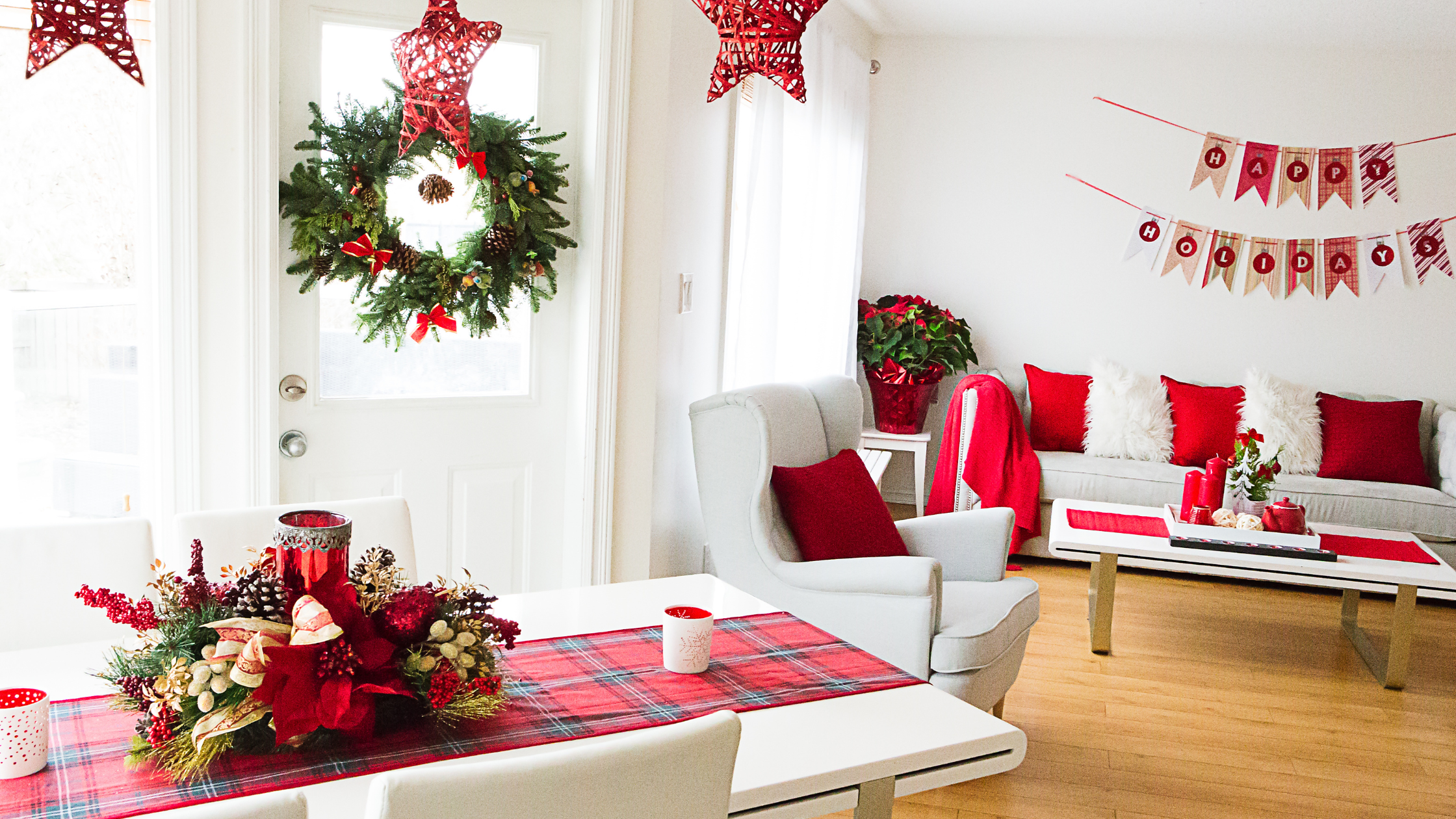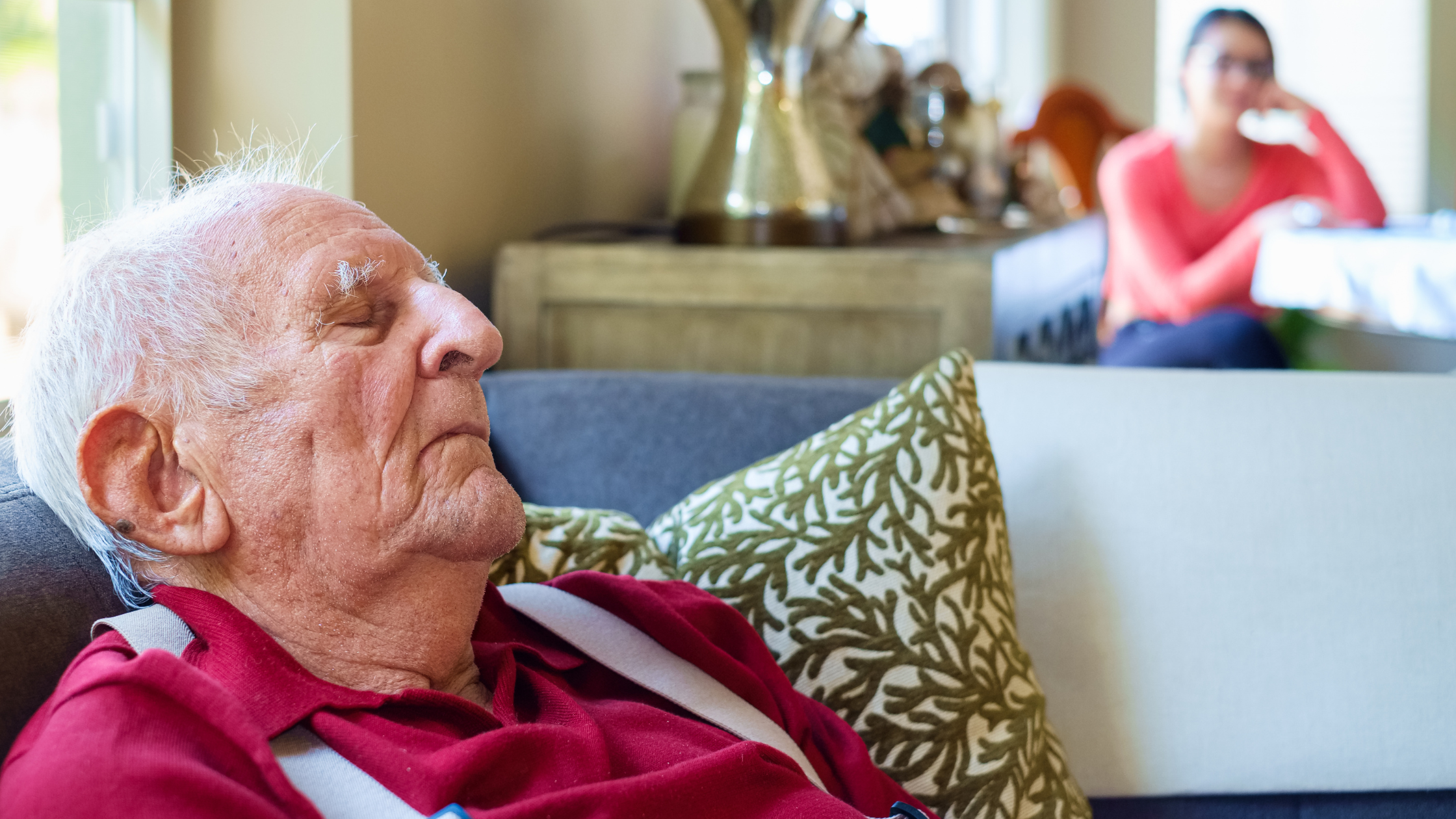11 Holiday Tips for Dementia Caregivers
Written by TYE Medical on Nov 14th 2023
If you’re caring for a loved one with dementia or Alzheimer’s, you’re facing unique challenges that most people don’t have to think about. One of those challenges is dealing with how the holidays affect your loved one. Dementia patients can become distressed, overstimulated, agitated, or withdrawn during this time. When this happens, it’s often a reaction to changes in routines, altered schedules, lavish decorations, an abundance of visitors, or even holiday travel. All of these can be stressful or taxing to someone with Alzheimer’s or dementia.
But when you understand the potential pitfalls and what is most upsetting to your loved one, you can make the right holiday preparations. Knowing the dos and don’ts specific to your loved one can make your December holiday and New Year more enjoyable for everyone. Here are some holiday tips for dementia caregivers that can make the season brighter.

1. Keep Holiday Decorations Simple
If you enjoy covering nearly every inch of your home in Christmas decorations and lights, it’s best to reconsider. Too much visual stimulation, especially when out of the ordinary, can make your loved one feel agitated and disoriented.
Instead, keep the number of lights to a more reasonable level and ensure they’re steady and not flashing. It’s also best to choose decorations that don’t make noise because random or constant noise is disruptive and stressful.
Here are some additional guidelines for dementia-friendly holiday decorations:
- Gradually add decorations over several days rather than putting them all up at one time.
- Use safe decorations that aren’t breakable or won’t shatter.
- Use electric instead of flame candles.
- Fasten the Christmas tree to the wall.
- Avoid decorations that could be mistaken for something edible (like fruit or cookies).
2. Modify Family Traditions
It can be helpful to modify some of your holiday traditions. Instead of larger gatherings and neighborhood caroling, it might be best to stick to activities like enjoying some classic holiday music, watching movies, driving through Christmas lights, or looking through photos from previous holidays.
And it’s probably best to shrink the size of your family gatherings. If you have a large family, you can try celebrating with different groups at different times. Smaller groups can make the holidays more comfortable for your loved one with dementia.
Since you may have to pare down your holiday activities, it can be a good idea to get input from your loved one. What traditions does he or she value most or look forward to? Be sure to include these in your plans.
If some beloved traditions must go by the wayside, see if you can involve your loved one in another way. If they enjoy Christmas shopping but can’t do so any longer, you could invite them to help you wrap gifts, even if they’re just handing you things or setting the bows.

3. Maintain Routine and a Quiet Place
Dementia sufferers require a reliable routine to be most comfortable and to minimize disoriented feelings. Do your best to ensure their daily routine is interrupted as little as possible. This means that their bedtime and waketime should remain the same
It might help to set up a quiet place, like their bedroom, where they can retreat if holiday activities or visitors become too much for them. This also allows them to continue taking their naps as scheduled, which is essential for their well-being and mood.
4. Minimize Your Own Stress
You might not have noticed, but Alzheimer's and dementia patients can be very sensitive to your moods. And this can alter their own. If you’re stressed, irritated, or depressed, it’s likely they’ll mirror your emotions. This means it’s critical that you manage your stress and practice some self-care during the holidays.
When your moods stir up your loved one, it can set off those challenging behaviors you want to avoid. And if this happens, it only heightens your stress.
One way to keep your stress in check is to limit your commitments and eliminate the most time-consuming or stressful holiday activities. If you hate baking cookies for everyone you know–don’t. Instead, make a few batches for your closest relatives or friends. If throwing a big holiday party stresses you out, then let everyone know you’re not doing it this year. Instead, choose to do those holiday activities that bring you the least stress and the most joy.
And remember that it’s always okay to ask for help. Check with other family members or friends to see how they can get more involved during the holidays.

5. Prepare Your Holiday Visitors
It’s a good idea to give your visitors an update on your loved one’s condition. Let them know about any changes in memory or behavior since they last visited. If there have been notable physical changes, it could be a good idea to send a photo ahead of time. This can help family and friends prepare for changes in appearance that might otherwise catch them off guard.
It’s also helpful for them to understand how best to communicate, which will depend on the stage of dementia. Suggest that they remember patience when conversing and refrain from criticizing or interrupting. It can be someone’s first instinct to cut in and say, “You already said that,” or to point out the repetition in their speech. You can advise them to let their friend or family member talk, even if it takes them longer to communicate or requires that you endure the repetition.
6. Address Holiday Depression
It’s not uncommon for dementia patients to feel down or even depressed during the holiday season. Sometimes they’re experiencing a sense of loss, feeling disconnected and longing for the holidays to be as they once were. Their sense of loss might also relate to missing a person who has since passed on. For some, they realize they don’t recognize the people they should know, and this can be troubling.
The best approach is to be understanding and look for ways to bring a smile to their faces. Schedule some time with people they remember and arrange for activities they still enjoy. If your loved one is often agitated and confused at night (called sundowning), you can schedule social gatherings earlier in the day.
Some may find comfort in looking at videos and photos from years past, especially if you do it as a family and can remember together. But keep in mind that if your loved one is in the later stages of dementia or Alzheimer’s and can’t remember much of anything about the past, then this could be counterproductive.

7. Carefully Schedule Time with Children
The energetic nature and excitement of children can overwhelm an Alzheimer’s or dementia patient. When this happens, it increases their agitation and creates behavioral problems. It’s best to schedule visits with younger ones during times that are best for them and your aging loved one. If your family member with dementia becomes tired or grumpy in the later afternoon, avoid scheduling any visits and especially visits with children during that time.
Instead, choose one of their more optimal times when they are rested and their mood is elevated. And of course, limit time spent with children to what your elderly loved one can best tolerate.
You might have your loved one retreat to their quiet room when visiting time with the children is up, or you may whisk the children away to another room or part of the property. Your guests don’t necessarily have to leave the premises.
8. Play Board Games
If your loved one enjoys board games, set aside some time to gather with family or friends and play. Be sure to choose your elderly family member’s favorites. For some, it might take a little memory jogging, and others might need to relearn. But if the experience is stressful and has the opposite of the intended effect, then it’s best to pull back and try something else instead.

9. Take a Walk
Walking can help to de-stress and calm both you and your loved one. And when you walk outside, it allows for a change of scenery and opens the doors for conversation. The fresh air, daylight, and exercise can also boost your moods.
You might also catch some holiday decorations and meet some friendly neighbors along the way. All of which can benefit your loved one and make the holidays special.
10. Let Guests Bring Pets
If any of your family and friends have loving and friendly pets, invite them to visit also. Calm and affectionate animals have a positive impact on dementia and Alzheimer’s patients. This is why pet therapy has become more common in nursing homes and assisted living centers. Friendly pets can add a touch of cheer and comfort to your loved one’s holidays.

11. Use Premium Incontinence Products
Many dementia patients develop urinary incontinence or had the condition before their dementia diagnosis. For some, the condition is related to memory loss and the inability to recognize when they have to go (functional incontinence).
In either case, it can complicate matters during the holidays. Even if your loved one is usually able to detect their toilet needs, the changes and disruptions during the holidays might make this more difficult for them.
It’s best to be prepared with premium incontinence products that will keep your loved one protected from leaks even when least expected.
TYE Medical offers a variety of incontinence products to suit a range of needs, including 3X sizes. Shop our online store for free and discreet shipping on all orders!


